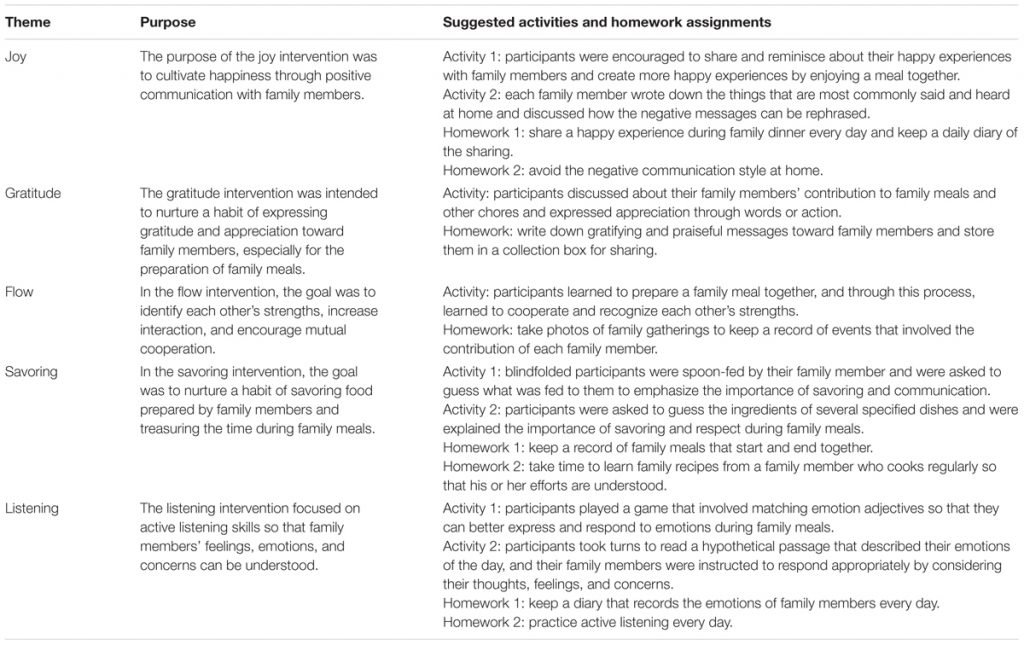Those of you who have taken a class with me know that I believe that sharing food can play an important role in the classroom. I stock my office candy jar at the beginning of each semester after asking everyone to tell me their favorite candy – I want to encourage office hour attendance, so I make sure to have the most potent reinforcers available to encourage repeat visits! My seminar on gender & psychopathology always begins with some baked goods, followed by a discussion of some of the biological (you learn better when you’re not hungry!), psychological (perhaps inducing a halo effect – if you feel good about the snacks, maybe you’ll generalize that to the class as well?) and social (sharing food can help build a sense of community) goals that this might accomplish. My favorite way to hold office hours is to meet over lunch at Commons.
Given this context, I was very excited to learn about today’s study, which evaluated a positive psychology intervention built around cooking and eating together. The intervention promotes five themes: joy, gratitude, flow, savoring, and listening. The authors describe several reasons that embedding their intervention in cooking and dining was a valuable approach:
- The activities did not add additional time demands for participants, which could be especially helpful for people who are already experiencing difficulty with work/life conflicts.
- The activities are aligned with cultural values of the study’s Chinese participants, for whom “cooking and dining with family members is emphasized and provides a channel to promote family bonding and the transference of knowledge and skills between generations.”
- The intervention is easy to disseminate and sustain in large community contexts.
For today’s exercise, I have shared the activities from this “Happy Family Kitchen” intervention. I encourage you to adapt these ideas for your household!

The Science
Ho, H. C. Y., Mui, M., Wan, A., Ng, Y., Stewart, S. M., Yew, C., Lam, T. H., & Chan, S. S. (2016). Happy Family Kitchen II: A cluster randomized controlled trial of a community-based family intervention for enhancing family communication and well-being in Hong Kong. Frontiers in Psychology. https://doi.org/10.3389/fpsyg.2016.00638
Abstract: Long working hours and stressful urban lifestyles pose major challenges to family communication and well-being in Hong Kong. A community-based family intervention derived from a positive psychology framework, by using cooking and dining as a platform, was developed for improving family communication and well-being. Social workers and teachers from 31 social service units and schools in collaboration with an academic partner organized and conducted the intervention programs for 2,070 individuals from 973 families in a deprived district in Hong Kong. The participants were randomly assigned into the intervention or control group in a cluster randomized controlled trial (cRCT). The core intervention covered one of five positive psychology themes: joy, gratitude, flow, savoring, and listening. Assessments at pre-intervention, immediate post-intervention, and 4 and 12 weeks post-intervention showed improved family communication and well-being with sustainable effects up to 12 weeks. Positive changes in family happiness and family health were greater in the intervention group than in the control group. The savoring intervention had the most improved outcomes among the five themes. We concluded that this large-scale brief cRCT developed and conducted in real-world settings provided evidence for the feasibility and effectiveness of a community-based family intervention.